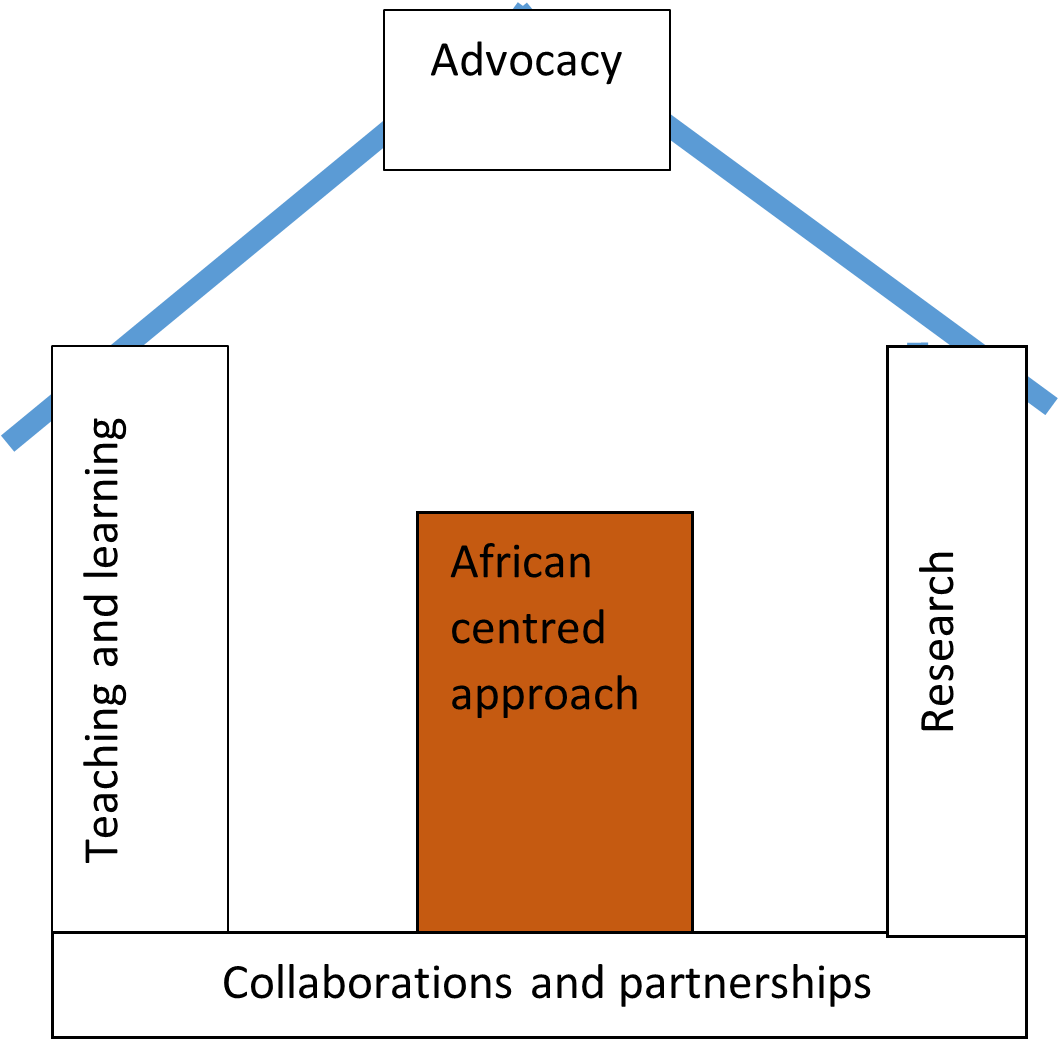Division of Disability & Rehabilitation Studies
Projects
African Initiative on Assistive Technology (AfriAT)
“Assistive Technology for participation to promote inclusive African Societies"
Vision and Mission statement
African Initiative on Assistive Technology (AfriAT) is guided by the philosophy of inclusiveness and full participation through engagement with assistive technology. AfriAT is committed to exploring the different notions, understandings and applications of AT that are reflected within the uniquely diverse African contexts, seeking to spread the discourse on AT beyond the medical domain towards a public health and cross-sectoral, societal approach, as an issue of life and existence. AfriAT is a strategic response to current events, discourses and status of AT within South Africa, Africa and globally. Establishing partnerships to develop and drive an effective systems approach that would support efficient AT service delivery and contribute to user satisfaction with a special focus on African societies.
Current Area of Focus
Although AfriAT has a long-term interest and vision across all types of AT and the various systems related to its usage, AfriAT will focus for the now, on mobility impairment. This consensus is informed by the fact that the current expertise within AfriAT is located in this area.
AfriAT aims to:
- Create a collaborative space for shared learning experiences and AT knowledge creation amongst professionals
- Address issues of human resources development in the area of AT through its training initiatives
- Encourage the incorporation of the proud heritage of indigenous and cultural knowledge and practices as a cross cutting issue within programme development and AT research
- Facilitate translation of research evidence into disability and rehabilitation frameworks, policies and systems

AfriAT Pillars:
The AfriAT programme aims to respond to these African centred and global research and training priorities discussed above through the four pillars of the AfriAT programme:
- Programmes
- Research
- Advocacy
- Partnerships.
Why AfriAT?
Based on the current situation as discussed above,
AfriAT will pull out four main critical issues that emerge and need to be addressed.
First is the issue of
advocating for the development of contextually appropriate services across the continent. There is inadequate enforcement in terms of products standards of AP. Although we have various policy documents like the Guidelines on the provision of Manual Wheelchairs in less resourced settings, Standardisation of Provision of Assistive Devices in South Africa and various other policy documents there is no accountability in terms of adherence. So there needs to be agency around engaging with policies that guide and enforce certain standards for AP services and provision which AfriAT will help develop with its collaborators.
Secondly, Africa is a continent with a growing population, and between now and 2050 more than 50% of the world population growth will occur in Africa (UN 2015). This development coupled with expected longevity implies the need not only for a healthcare service delivery system that keeps up with its growing population, but mandates the need to
explore a systems approach that will not focus on health as a silo, but look at a broader integrated biopsychosocial perspective of health. This calls for ongoing research and statistical evidence for effective planning and delivery. AP provision falls within this projection and in seeking to contribute to
research and training on AT service delivery influenced by systems thinking, AfriAT supports the idea of sustainable health for a growing African population.
Thirdly, there is the
constant challenge of human resources availability and capacitation, which is experienced within Africa. The need for AT by the population far outweigh the professionals who are able to provide the services. WHO projects that there will be a shortfall of healthcare workers in the world of 12.9 million by 2035, with inadequate training cited as one of the major causes of the loss of these professionals. Africa and South East Asian regions have been cited as having the largest needs based shortage in terms of health professionals' availability. There is a critical need to stave off this looming crisis. AfriAT will assist in
developing human capacity in this area through its training programmes and by joining various global training initiatives with programmes that aim at both postgraduate and community levels of engagement.
Last of all, WHO has mandated access to universal health coverage for all, while stipulating that different population and countries need to tailor these coverage according to specific contextually relevant needs and priorities. Within the field of AT, this mandate has been further supported through the development of a priority list of 50 Priority Assistive Products by the WHO Global Cooperation on Assistive Technology (GATE). It is however relevant to first explore and determine that it meets the contextual needs and priorities of the AT users. This requires a
sensitivity and understanding of the African context, diversity and of different approaches to supply chain and funding, systems which AfriAT is able to deliver on through its
African centred approach to AT.

